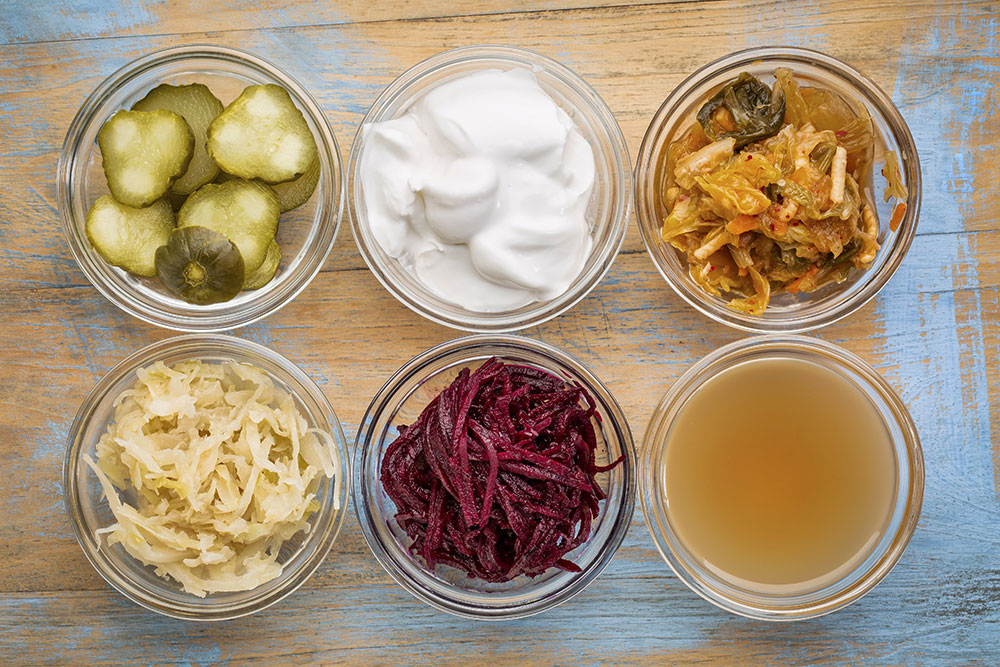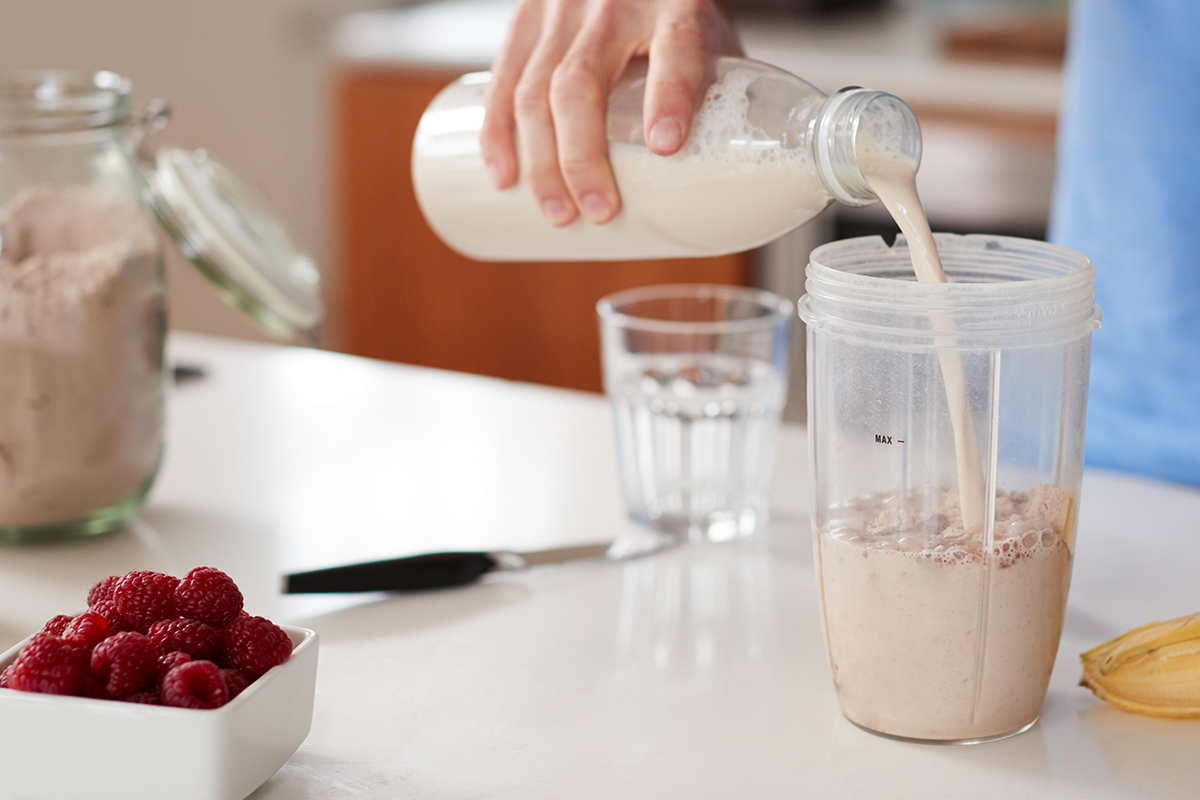
While yogurt has been at the forefront of US probiotic food sales, kombucha tea is gaining popularity. It can thank fermented foods like sauerkraut, kimchi and kefir for paving the way. For thousands of years, fermentation has been used across the globe to retain shelf-life, prevent food spoilage, and produce alcohol.
What is fermentation? It is the slow, primarily anaerobic oxidation of sugars [induced by microorganisms (probiotics) or by enzymes of plant or animal origin] to other compounds, which produces energy for the microorganism.
In addition to the aforementioned, the list of available fermented items includes foods such as sourdough bread, beer, wine, fermented soybeans, fava bean flour, fermented sausage, fermented rice vinegar, fermented malt-based beverages, and fermented noni juice. Besides being epicurean, these foods are also healthy. Consumption of fermented foods is associated with numerous health benefits1.
The underlying microbial functionality of fermented foods has been unfolding in the last decade. Take the case of yogurt and kefir, for example: Fermented dairy foods have long been known to benefit gut health by way of intestinal microbiota. It was found that lactobacilli, the bacteria present in fermented dairy, also reduced vaginal and bladder infections by competing with pathogens2. Presently, fermented dairy products are associated with a reduced risk of cardiovascular disease and certain cancers, and an improvement in immunity and metabolism, showing that the benefits of fermented dairy can go beyond the gut to other sites in the body as well.
From coffee’s suspected relation to improvements in mental health1 to fermented soy products’ connection with cardiovascular health1, these functional foods provide important enhancements to our overall health. Even glucose homeostasis (which is not isolated to a particular organ or body site) has been shown to be positively affected by fermented dairy products and kimchi. Now researchers are investigating whether fermented noni fruit juice has anti-diabetic effects. Where will we go next? Current research is investigating the bioactive compounds in fermented foods to see their effect on inflammation, oxidative stress, blood pressure, and anti-radical capacity.


Did You Know??
Speaking of blood pressure, here is a juxtaposition: While kimchi is salty, greater intakes of it are not associated with higher risk of hypertension*. Researchers speculate this is because of its function as a probiotic, preventing increases in blood pressure. They stated, “One of the beneficial effects of kimchi comes from the fermentation process by lactic acid bacteria, which leads to the eradication of pathogenic organisms and increases its health benefits and functionalities as a probiotic3.”

Fermentation, probiotics… getting confused? They are closely related, but not the same. Fermented foods contain living microorganisms of which some are genetically similar to strains used as probiotics1. Microbes in fermented foods introduce new compounds to the foods that are delivered to the gut, in a manner similar to probiotics.
While there may be a higher price tag for currently trendy fermented beverages, you can always incorporate basic sourdough bread, beer, wine, and active-culture yogurt as part of your fermented food arsenal.
*These results do not apply to obese men consuming ‘watery’ kimchi which has fewer probiotic components than do other types of kimchi.
Want more? SUBSCRIBE to receive the latest Living Healthy articles right in your inbox!
References
- Health benefits of fermented foods: microbiota and beyond. Current Opinion in Biotechnology. Marco ML, et al. 2017 Apr; 44:9 4-102.
- The development of probiotics for women’s health. Reid G. Canadian Journal of Microbiology2017 Apr; 63(4): 269-277
- High consumption of salt-fermented vegetables and hypertension risk in adults: a 12-year follow-up study. Song HJ, Park SJ, Jang DJ, Kwon DY, Lee HJ. Asia Pacific Journal of Clinical Nutrition2017; 26(4): 698-707.
Recommended Reading

Nutritious Green Foods You Didn’t Know About
Good nutrition is all about variety! Browse through our list of unusual fruits and veggies and give yourself a chance to try something new.

Salt Grains for Muscle Gains?
Does liberally salting your food help you pump more iron in the gym? Registered Dietitian, Debbie James, investigates the claims!

How Much Protein Does Your Body Need?
One frequently asked question is about the recommended intake of protein. We hear you! Here is everything you need to know.

